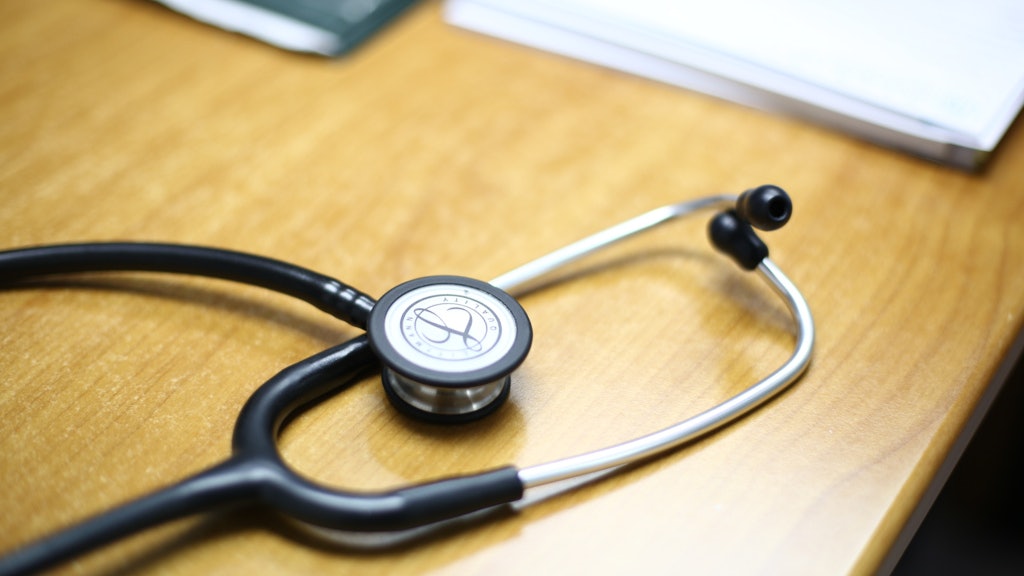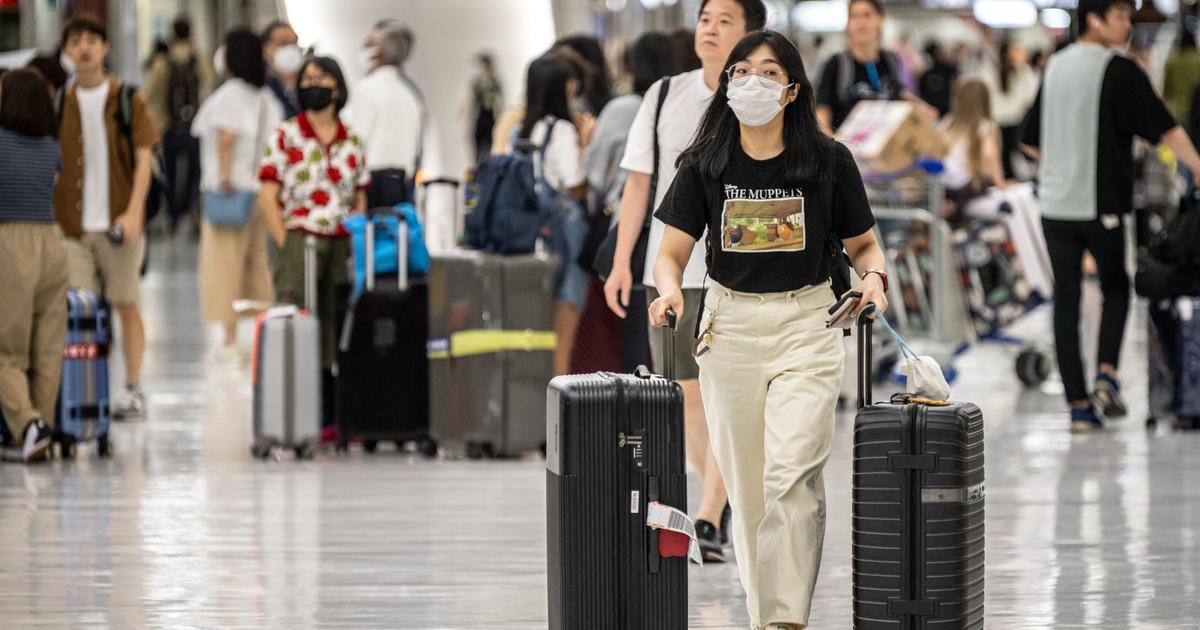weekly
Author: Hao Ziyu
2020-06-23 16:30
Date of last update: 2020-06-23 16:30Family doctors have always been dwarfed as the role of "recommending referrals", but in fact, they have begun to escort public health from the level of cultivating public health habits. The concept of "holistic treatment" not only can fully take care of the physical and mental health of patients, but also exerts an irreplaceable influence on the level of public health. However, if such a huge influence and role cannot be taken seriously, it will only exist as a "blueprint" and no real value can be realized.
To undertake the above: [New Coronary Pneumonia] Family doctors are underestimated for the epidemic and participation is limited?
Can building trust relationships ease public anxiety?
In order to understand the risk perception and psychological behavioral response of the local people to the outbreak, the Jockey Club School of Public Health and Primary Medicine of the Chinese University of Hong Kong Medical School interviewed 1,168 citizens from January 24 to February 5 this year. 88% of the respondents felt that they had a great chance of being infected with the new coronavirus, reflecting the high level of public perception of the risk of the outbreak. The survey also found that about 90% of the respondents strengthened personal hygiene, such as wearing masks and cleaning hands. Family medicine plays a guiding role in cultivating health awareness and developing hygienic habits.
Li Guodong agrees with the role of family doctors in the epidemic. He said that family medicine is not just about seeing a doctor, but also exerting an influence on public health, so that the general public can be "cautious" in daily life: "You see other infectious diseases this year, like Flu, hand, foot and mouth disease are much less, this is the result of everyone wearing a mask and paying attention to hygiene. We can also be more careful after the outbreak, keep a distance to crowded places, wash hands frequently, and wear masks when you are uncomfortable. These are all This is where family doctors can make an impact."
Li Guodong believes that the government should further promote the medical-society cooperation model. (Profile picture/photo by Huang Baoying)
In addition to influencing everyone's views and behaviors on health, the relationship between family doctors and patients is also the key to preventing diseases and fighting epidemics. Li Guodong repeatedly emphasized that everyone should have a reliable family doctor. For example, during this epidemic, some of his patients would occasionally call him or "report" his health status through video. He suggested that the family doctor should establish a better relationship with the patient: "You don’t have to visit the door, just call and ask them about their recent physical conditions. The patient feels that you care, and they will strengthen trust. For the profession of family doctor, trust , Is a very important part. If someone is worried about being infected, you can feel at ease after asking your family doctor without worrying about it every day. We can also provide information, for example, many patients want to know whether the serum test is useful. We can provide free explanations if there are symptoms, etc. We will also remind them to take anti-epidemic measures. We can also care about whether the long-term patients have enough medicines, whether they need to go to the hospital for examination now, etc."
The above-mentioned CUHK questionnaire survey also showed that 98% of the respondents expressed anxiety about the epidemic, with an average anxiety index as high as 8.82 points (7 points or below are normal, 8 to 10 points are critical abnormalities, and 11 to 21 points are abnormal). Reflect the public's anxiety level is already very high. Facing a wide range of panic and anxiety in the society, family doctors play an important "treatment" role, because they are the people who stand at the forefront of the community, have the most communication with citizens and patients, and know each other the most. Health education information is often Communicate to patients through them.
According to a survey conducted by CUHK, 98% of the respondents expressed anxiety about the epidemic. (Profile picture)
Lin Lujuan pointed out that in Hong Kong's medical network, most people have family doctors who usually go to see them. In case of symptoms such as runny nose, sneezing, or coughing during an epidemic, you will doubt whether you are "attracted". At this time, if everyone rushes into the hospital for examination, it will inevitably increase the burden on the hospital. Therefore, many people choose to see their familiar family doctor, and the doctor will also judge the possibility of infection based on the patient's past medical history and physical condition.
Lin Lujuan said that generally speaking, each person sees a family doctor at least twice a year, so the doctor is not only familiar with the patient's condition, but also establishes psychological trust between the doctor and the patient, which is impossible for many specialists. For example, she pointed out that when some patients go to the hospital for treatment, treatment or even surgery, they will call their family doctors to explain the situation, refer to their opinions, and let them explain some difficult medical terms for themselves before they can be assured of treatment. . In addition, due to the close connection between the family doctor and the patient, the patient's situation is better understood, so even if the online consultation, the effect will be better and more accurate.
She also mentioned that family doctors will pay attention to pre-epidemic prevention, distinguish patients' conditions in the epidemic for referral to the hospital, and do a good job in the follow-up and follow-up of those who are "rejuvenating" and those who recover after the epidemic. In addition, family medicine is more concerned about people's psychology during the public health crisis: "It may be more than a thousand people who are infected, but more than seven million people are psychologically affected by the epidemic."
Lin Lujuan pointed out that family doctors will pay attention to pre-epidemic prevention, distinguish patients' condition in the epidemic situation to refer to the hospital, and do the finishing and follow-up for those who are "rejuvenating" and recovered after the epidemic. (Photo by Huang Shuhui)
Is developmental holistic treatment only a "blueprint"?
As early as the end of 2018, Chief Executive Lin Zhengyue pointed out that there were comments in the 1980s that the hospital-based medical system could not meet all medical needs. She also pointed out that the development of people-oriented primary medical care in Hong Kong has been lagging for 30 years, and the current medical system relies too heavily on inpatient services, which poses challenges to sustainability. In fact, public medical services in Hong Kong are already overwhelmed, and the public hospitals are not new. From the early SARS, swine flu, to the peak of influenza and other infectious diseases that are encountered every year, hospital beds And the manpower is often tight. This constant "crisis" is largely related to poor coordination between the public and private sectors and insufficient family doctors.
"There are currently 73 general outpatient clinics managed by the HA in Hong Kong, which cannot meet the needs of Hong Kong. Therefore, it is necessary to cooperate with private practitioners. Private family doctor clinics and general outpatient clinics of the HA are both providers of primary care. Said Lin Lujuan. The Hong Kong Academy of Family Medicine also pointed out in the report that private doctors are an important stakeholder in Hong Kong’s overall public health system strategy and emergency response. 70% of primary medical services are currently provided by private clinics. The involvement of private family doctors and the strengthening of coordination between public and private institutions are crucial in fighting the disease and even the outbreak of new coronary pneumonia. From 2009 to 2015, the risk assessment management plan (RAMP) performed by HA family doctors for diabetic patients showed that a total of more than 60,000 patients reduced the mortality rate of all causes by 13.4%, and calculated the savings for the HA within five years. Over 3.5 billion yuan. This shows that as a "first line of defense", primary medical care not only reduces the burden on the hospital in terms of manpower, but also greatly eases the financial pressure.
There are currently about 3,700 family doctors in Hong Kong, that is to say, each family doctor serves an average of 2,000 citizens. "Why are there so few family doctors in Hong Kong? Generally speaking, surgeons are very willing to stay in the HA. Although their income is not as good as private hospitals, many doctors are willing to stay and accumulate experience. It will not be until ten or twenty years later. Switching to a private company, with these years of experience, is enough to increase their income several times. What about family doctors? Even if we go to a private company, our fees will not be too high, and the income will not be so attractive. In the HA, family medicine is only a very small part. Even the doctors after training will feel that they are unable to open a clinic alone. Many people finally choose to engage in some beauty-related industries." Li Guodong said that the development of grassroots Medical care can't just talk about it, but invest resources like other countries—whether in terms of capital investment or attracting talent.
There are currently 73 general outpatient clinics managed by the HA in Hong Kong, which cannot meet the needs of Hong Kong. (Profile picture)
In addition, the combination of public and private in the medical system is also reflected in the technical level. The flow of patients' electronic files has always been a concern. Even if the government further develops an electronic health record interoperability system, "Medical Health", to facilitate people to browse medical records online, there is still room for improvement. Li Guodong pointed out that the relevant system is still in the "run-in period" and can only be checked one-way for the time being, that is, family doctors can see the medical records in public hospitals, but it is difficult to enter their own consultations, which may lead to patients after admission Repeat the inspection. In addition, most of the 70% of family doctors from private clinics in Hong Kong are already accustomed to using a system. Now they need to exchange information through "Health and Health". It takes time to process the unified uploading of documents. But he believes that in the era of electronic information, this is not difficult.
The Intelligence Research Center published a research report on "Towards Universal Health Coverage: Primary Health Care Services in Selected Places" on the 28th of last month. The report used seven regions in England, Australia, Singapore, Canada, the Netherlands, Israel, and Mainland China as research. Target, explore policy concepts, directions and practical experience that can be used for reference by the primary health care service model in Hong Kong. The report pointed out that even if the factors for the development of primary health care cannot be generalized, the experience of various places has shown the common ground-the government is the leader in promoting primary health care.
As the convener of the project, Li Guodong said that Hong Kong should shift the intrinsic model of "hospital treatment" to "community care" to broaden the safety net of "treatment of the disease", so as to provide a more comprehensive and sustainable medical service. In the primary medical system in some developing countries, family doctors not only need to diagnose and treat patients, but also often visit residents in the community to understand their life and physical conditions in chat, and make pre-judgments about possible and occurring diseases, but Hong Kong The cost of medical services is relatively high, and there are social workers, nursing and other types of work to assist doctors, so a grassroots medical and health service model that meets the needs of Hong Kong-the combination of medical and social services, has emerged.
Li Guodong gave an example to explain the ideal integrated medical service: a patient who has a medical condition will be judged by the family doctor first. If necessary, he will be referred to a hospital specialty for intensive treatment, and the entire rehabilitation process requires the "medical society" to contact Let the social welfare community help solve problems such as poor economic conditions, no one at home, or immediate communication with doctors during the nursing process. "Community medical centers and hospitals cannot be discussed separately, because in many parts of the world, these two are a team-grassroots medical care is to talk about teams, regardless of you and me." Li Guodong said, "However, now (these work) It is separate. This is what the regional health center should do."
The Government launched the first regional health centre in Kwai Tsing District in September last year. The picture shows the Kwai Tsing District Health Centre. (Profile picture / Photograph by Liang Pengwei)
To further improve district-based primary medical services, the government launched the first regional health center in Kwai Tsing District in September last year, providing services in a public-private collaboration and medical-social cooperation mode. The long-term goal is to promote the regional health center to District 1. One. However, Li Guodong believes that doctors, community health centers, and social welfare are inadequately connected, inadequately communicated, and lack of understanding, and even the public does not know much about the health center. "Everyone does not have a team, but does their own thing. Regional health centers are not only doing preventive medicine, but also have to cooperate with doctors and follow up on the condition for a long time. These are to let the public know." As he said, the public’s role in the health center is not clear, how can it be reasonable use? In this way, the blueprint originally designed will be wasted, so that the blueprint will always only be a blueprint and cannot be realized.
related articles︰
[Community Medical. A] What kind of deficiencies does grassroots medical care owe for 30 years of preparation?
[Community Medical. Two] From the "medical and social cooperation" to solve the community needs to repair the current situation
[Community Medical. Three] Health centers should take "medical welfare" as the basis to relieve the burden of public medical services
[Health Center. Above] First-line primary medical shunt patients reduce public hospital outpatient pressure
[Health Center. Next] There are still restrictions on the optimal hardware support for the overall deployment of medical services
[Primary care. A] The public hospital's assisted medical system is "abstracted by the lack of talent". The above is excerpted in the 219th issue of "Hong Kong 01" Weekly News (June 22, 2020) "After the epidemic situation, family doctors are unable to defend their health."
More weekly articles:【01 Weekly News Page】
[01 Initiative] Listen to the pains of the four generations to resolve deep-level structural contradictions
"Hong Kong 01" Weekly, available at major newsstands, OK convenience stores and Vango convenience stores. You can also subscribe to the weekly report here, or click here to preview the weekly e-newsletter to read more in-depth reports.
New Coronary Pneumonia Primary Medical System 01 Weekly In-depth Report


/cloudfront-eu-central-1.images.arcpublishing.com/prisa/P745MWQBCNBN7AWD6U4PGHDA4I.jpg)




